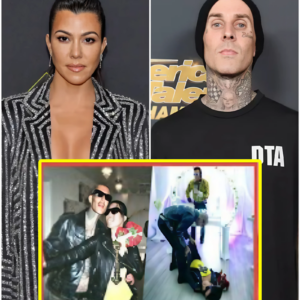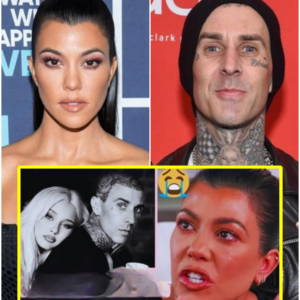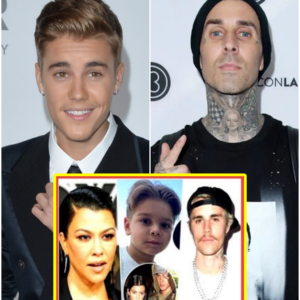In recent years, Mase, the former Bad Boy Records artist, has been vocal about his grievances with Sean “Diddy” Combs, shedding light on alleged injustices within the music industry. His claims are not only a reflection of personal frustration but also a broader commentary on the exploitation that can occur behind the scenes.
Mase’s primary accusation is that Diddy has failed to properly compensate him for his contributions. According to Mase, despite working on successful projects like “Money, Power & Respect,” he received only a fraction of what he was owed. He claims that Diddy has retained a significant portion of publishing rights, which he believes is unjustified given the nature of their contractual agreement.

A recurring theme in Mase’s narrative is the notion of being undervalued and mistreated. He asserts that he was not only underpaid but also disrespected, which contributed to his decision to leave Bad Boy Records after just one album. Mase suggests that Diddy deliberately kept him in a subordinate position, preventing his career from advancing while others around him moved up the industry ladder.
One of the most significant points Mase raises is the issue of publishing rights. He alleges that Diddy has manipulated contracts and used his mother’s name to shield himself from lawsuits related to publishing disputes. This strategy, Mase implies, has been part of a broader pattern of fraud and exploitation.
The former artist’s criticism extends to Diddy’s management style and business practices. Mase describes a lack of transparency and fairness in their dealings, highlighting instances where he believes Diddy prioritized his own interests over those of his artists. This includes allegations that Diddy failed to pay what he owed or address grievances raised by his artists, further exacerbating Mase’s frustration.
Mase’s claims are not isolated; they echo broader criticisms faced by Diddy over the years. Many artists have shared similar experiences, pointing to a pattern of underhanded tactics and exploitative contracts. The former Bad Boy artists’ complaints have often centered around issues of unfair compensation and control over their work.
Moreover, Mase’s allegations also touch on more serious accusations, including threats and intimidation. He suggests that Diddy has used his influence to silence dissent and maintain control, creating an environment where speaking out can have severe consequences.
The discussion around Mase’s accusations also intersects with broader issues in the music industry. It highlights the need for greater transparency and fairness in artist-management relationships. Mase’s experience serves as a cautionary tale for new artists entering the industry, emphasizing the importance of understanding contractual obligations and seeking equitable deals.
Diddy’s response to these accusations has been defensive, insisting that he has always been accessible and open to resolving disputes directly. He denies any wrongdoing, portraying himself as a businessman who is misunderstood rather than a perpetrator of exploitation.
Ultimately, Mase’s ongoing criticism and revelations serve to spotlight the often-hidden struggles faced by artists in the music industry. His story underscores the complexities and challenges of navigating a career in a field where power dynamics and contractual disputes can significantly impact one’s success and well-being.
As the investigation into Diddy’s practices continues, Mase’s vocal stance remains a significant factor in the conversation about fairness and integrity in the music business. Whether or not his allegations lead to concrete changes, they have undeniably sparked important discussions about the treatment of artists and the need for reform within the industry.
News
(B) Travis Barker MISSED when Kourtney Kardashian returned home drunk after Kardashians party. (VIDEO)…
Courtney Kardashian made headlines just seven weeks after giving birth when she decided to attend the annual Kardashian Jenner Christmas party sans pants. Despite recently welcoming her fourth child, Rocky, with boyfriend Travis Barker, Courtney seemed anything but tired as…
(B) Kourtney Kardashian Shocking Revelation on Why Her Relationship with Travis Barker Ended. (VIDEO)…
In the public eye, Travis Barker and Courtney Kardashian’s relationship was once perceived as an unbreakable union, filled with passion and devotion. However, recent revelations paint a vastly different picture, revealing the underlying turmoil that ultimately led to its demise….
(B) Kourtney Kardashian SECRET XTAPE With Minor Justin Bieber REVIEWED by The Feds. (VIDEO)
The recent discovery of a video purportedly featuring Courtney Kardashian and Justin Bieber has ignited a firestorm within the entertainment industry, prompting intense speculation about its potential ramifications. This revelation, coupled with reports of a raid on Diddy’s home, has…
(B) EXTREMELY SHOCKING: Kris Jenner Lied About DNA Test To Khloe Kardashian As O.J. Simpson Could Be Her Father. (VIDEO)..
In a moment etched into the memories of internet users, Chris Jenner once orchestrated a dramatic DNA test to dispel rumors surrounding Khloe Kardashian’s paternity. Speculations swirled, stemming from Jenner’s revelations in her memoir “Chris Jenner and All Things Kardashian,”…
(B) Kourtney Kardashian finally shows proof her son Reign Disick is actually Justin Bieber’s son. (VIDEO)..
Courtney Kardashian recently embarked on an exciting escapade to Australia and New Zealand with her husband, Travis Barker, for his tour. However, it was their youngest son, Rain, who stole the spotlight during their adventures. With his mischievous antics and…
(B) NEWS HOT; Travis Barker Found Evidence of Kourtney Shared Baby With Justin Bieber (video)…
The rumor mill surrounding Justin Bieber and the Kardashian family has been churning for quite some time, igniting speculation about his connections with various members. While the details are murky and often sensationalized, let’s delve into the complexities of these…
End of content
No more pages to load











